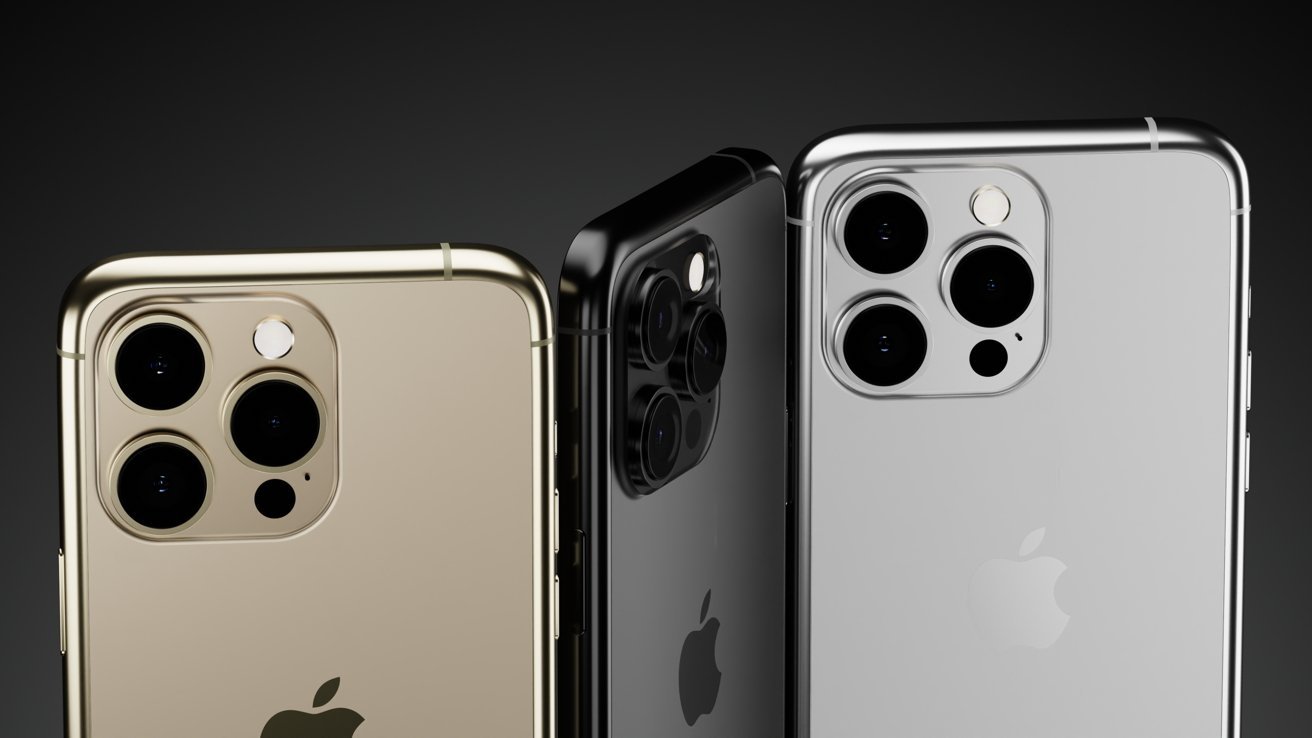iPhone 15 could be the first iPhone to feature Wi-Fi 6E
A new analyst note suggests that Apple will be bringing Wi-Fi 6E to the iPhone 15, bringing the device in line with other Apple devices like the Mac mini, MacBook Pro, and iPad Pro.

Barclays analysts Blayne Curtis and Tom O'Malley shared a research note, seen by MacRumors, that posits Apple will add Wi-Fi 6E support to its upcoming iPhone 15 lineup.
Currently, it's yet to be determined whether support will be limited to the iPhone 15 Pro models.
Wi-Fi 6E works on the same 2.4GHz and 5GHz bands that Wi-Fi 6 does but also works over the 6GHz band. This enables faster wireless speeds and less signal interference. To use the 6Ghz band, devices must be connected to a Wi-Fi 6E router.
Wi-Fi 6E isn't new to Apple's current device lineup -- the current generation 11-inch and 12.9-inch iPad Pro, 14-inch and 16-inch MacBook Pro, and Mac mini all feature it.
The iPhone 14 lineup features standard Wi-Fi 6, despite previous rumors suggesting that it would see an upgrade.
The iPhone 15 is anticipated to release at the 2023 fall Apple Event, and analysts have already begun making predictions for Apple's next generation of smartphones.
Some believe the iPhone 15 and iPhone 15 Plus will feature a 3-stacked sensor and 48-megapixel wide lens, the same as the iPhone 14 Pro models.
Regarding the higher-end iPhone 15 Pro and iPhone 15 Pro Max, some analysts expect that Apple will add a 12-megapixel periscope lens geared toward improved optical zoom.
Both the iPhone 15 Pro and iPhone 15 Pro Max are anticipated to have an A17 chip built with TSMC's 3-nanometer technology, 8 gigabytes of RAM, and a new titanium frame.
Read on AppleInsider

Barclays analysts Blayne Curtis and Tom O'Malley shared a research note, seen by MacRumors, that posits Apple will add Wi-Fi 6E support to its upcoming iPhone 15 lineup.
Currently, it's yet to be determined whether support will be limited to the iPhone 15 Pro models.
Wi-Fi 6E works on the same 2.4GHz and 5GHz bands that Wi-Fi 6 does but also works over the 6GHz band. This enables faster wireless speeds and less signal interference. To use the 6Ghz band, devices must be connected to a Wi-Fi 6E router.
Wi-Fi 6E isn't new to Apple's current device lineup -- the current generation 11-inch and 12.9-inch iPad Pro, 14-inch and 16-inch MacBook Pro, and Mac mini all feature it.
The iPhone 14 lineup features standard Wi-Fi 6, despite previous rumors suggesting that it would see an upgrade.
The iPhone 15 is anticipated to release at the 2023 fall Apple Event, and analysts have already begun making predictions for Apple's next generation of smartphones.
Some believe the iPhone 15 and iPhone 15 Plus will feature a 3-stacked sensor and 48-megapixel wide lens, the same as the iPhone 14 Pro models.
Regarding the higher-end iPhone 15 Pro and iPhone 15 Pro Max, some analysts expect that Apple will add a 12-megapixel periscope lens geared toward improved optical zoom.
Both the iPhone 15 Pro and iPhone 15 Pro Max are anticipated to have an A17 chip built with TSMC's 3-nanometer technology, 8 gigabytes of RAM, and a new titanium frame.
Read on AppleInsider

Comments
That is a bold prediction…